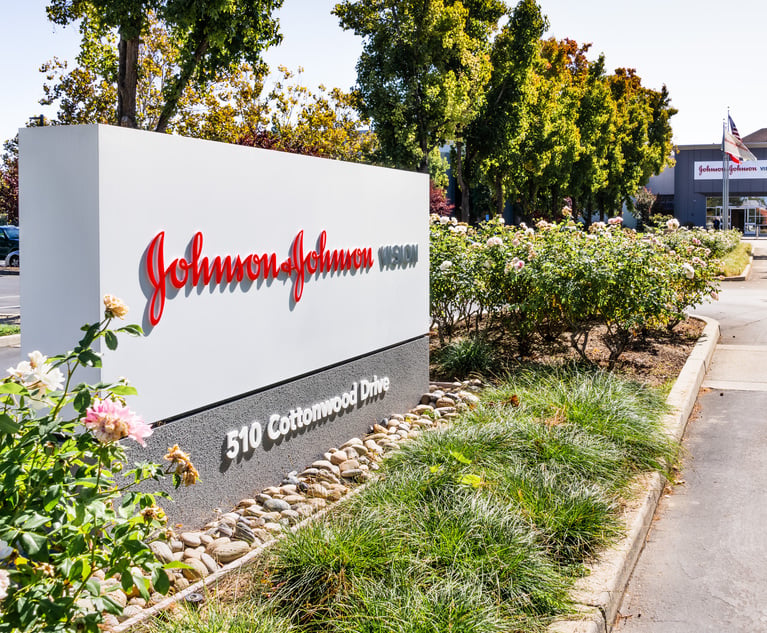 Glenn M. Campbell of Post & Schell. Courtesy photo
Glenn M. Campbell of Post & Schell. Courtesy photoA Deep Dive Into the Product-Line Exception in Pennsylvania
Imagine as a product manufacturer being held liable for defects in a product that you did not make, have never made, and have no plans to make. This very real possibility exists in Pennsylvania under what is commonly referred to as “the product-liability exception” to the general rule of successor nonliability. Although it has been around for close to 50 years, the exception is not well-developed in Pennsylvania.
November 19, 2024 at 08:00 AM
8 minute read
By Glenn M. Campbell
Imagine as a product manufacturer being held liable for defects in a product that you did not make, have never made, and have no plans to make. This very real possibility exists in Pennsylvania under what is commonly referred to as “the product-liability exception” to the general rule of successor nonliability. Although it has been around for close to 50 years, the exception is not well-developed in Pennsylvania.
In Pennsylvania, a company that acquires the assets of another company does not acquire the liabilities of the transferor corporation simply because the acquisition of assets. For liability to attach, Pennsylvania requires an express assumption of liability; the transaction amounts to a consolidation or merger; the successor corporation is a mere continuation of the predecessor; the transaction was fraudulently entered into; or the transfer is without adequate consideration. See Dawejko v. Jorgensen Steel, 434 A.2d 106, 107 (Pa. Super. 1981). Where one or more of these exceptions to the general rule of successor nonliability can be shown, the successor can be held liable for defects in products manufactured by the predecessor.
NOT FOR REPRINT
© 2025 ALM Global, LLC, All Rights Reserved. Request academic re-use from www.copyright.com. All other uses, submit a request to [email protected]. For more information visit Asset & Logo Licensing.
You Might Like
View All
Plaintiff Argues Jury's $22M Punitive Damages Finding Undermines J&J's Talc Trial Win
4 minute read
Products Liability: The Absence of Other Similar Claims—a Defense or a Misleading Effort to Sway a Jury?

Pittsburgh Jury Tries to Award $22M Against J&J in Talc Case Despite Handing Up Defense Verdict
4 minute read
Trending Stories
- 1Meta Workers Aren't of One Mind on Company's Retreat From DEI, Fact-Checking
- 2The Gloves Are Off in the Battle for Top Partner Talent
- 3RFK Jr. Will Keep Affiliations With Morgan & Morgan, Other Law Firms If Confirmed to DHHS
- 4BOI Reports: What Business Owners and Attorneys Should Know
- 5SurePoint Acquires Legal Practice Management Company ZenCase
Who Got The Work
J. Brugh Lower of Gibbons has entered an appearance for industrial equipment supplier Devco Corporation in a pending trademark infringement lawsuit. The suit, accusing the defendant of selling knock-off Graco products, was filed Dec. 18 in New Jersey District Court by Rivkin Radler on behalf of Graco Inc. and Graco Minnesota. The case, assigned to U.S. District Judge Zahid N. Quraishi, is 3:24-cv-11294, Graco Inc. et al v. Devco Corporation.
Who Got The Work
Rebecca Maller-Stein and Kent A. Yalowitz of Arnold & Porter Kaye Scholer have entered their appearances for Hanaco Venture Capital and its executives, Lior Prosor and David Frankel, in a pending securities lawsuit. The action, filed on Dec. 24 in New York Southern District Court by Zell, Aron & Co. on behalf of Goldeneye Advisors, accuses the defendants of negligently and fraudulently managing the plaintiff's $1 million investment. The case, assigned to U.S. District Judge Vernon S. Broderick, is 1:24-cv-09918, Goldeneye Advisors, LLC v. Hanaco Venture Capital, Ltd. et al.
Who Got The Work
Attorneys from A&O Shearman has stepped in as defense counsel for Toronto-Dominion Bank and other defendants in a pending securities class action. The suit, filed Dec. 11 in New York Southern District Court by Bleichmar Fonti & Auld, accuses the defendants of concealing the bank's 'pervasive' deficiencies in regards to its compliance with the Bank Secrecy Act and the quality of its anti-money laundering controls. The case, assigned to U.S. District Judge Arun Subramanian, is 1:24-cv-09445, Gonzalez v. The Toronto-Dominion Bank et al.
Who Got The Work
Crown Castle International, a Pennsylvania company providing shared communications infrastructure, has turned to Luke D. Wolf of Gordon Rees Scully Mansukhani to fend off a pending breach-of-contract lawsuit. The court action, filed Nov. 25 in Michigan Eastern District Court by Hooper Hathaway PC on behalf of The Town Residences LLC, accuses Crown Castle of failing to transfer approximately $30,000 in utility payments from T-Mobile in breach of a roof-top lease and assignment agreement. The case, assigned to U.S. District Judge Susan K. Declercq, is 2:24-cv-13131, The Town Residences LLC v. T-Mobile US, Inc. et al.
Who Got The Work
Wilfred P. Coronato and Daniel M. Schwartz of McCarter & English have stepped in as defense counsel to Electrolux Home Products Inc. in a pending product liability lawsuit. The court action, filed Nov. 26 in New York Eastern District Court by Poulos Lopiccolo PC and Nagel Rice LLP on behalf of David Stern, alleges that the defendant's refrigerators’ drawers and shelving repeatedly break and fall apart within months after purchase. The case, assigned to U.S. District Judge Joan M. Azrack, is 2:24-cv-08204, Stern v. Electrolux Home Products, Inc.





